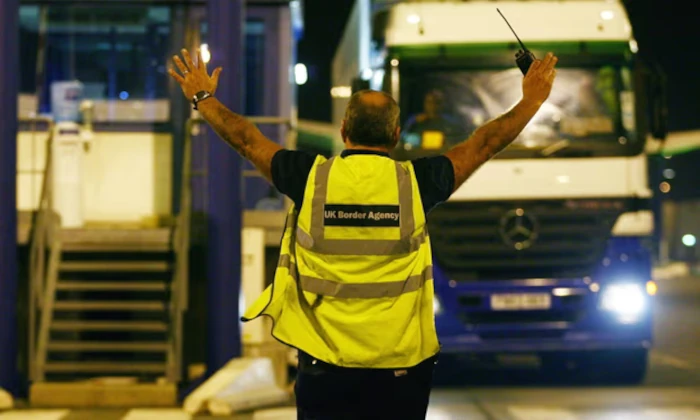The UK government anticipates spending at least £4.7bn on post-Brexit border controls, according to a report by the National Audit Office (NAO). These controls, which have faced repeated delays, have been criticized by the public spending watchdog.
The introduction of border checks on goods from the EU in April was marked by “significant issues,” including a shortage of inspectors, the NAO reported. The UK aims to have the “world’s most effective border” by 2025, but the lack of a clear timetable and integrated cross-government plan has been highlighted by the watchdog.
The government has already spent £2.6bn of the estimated £4.7bn on 13 major border-related programs. In January, the Cabinet Office expressed concerns about the readiness for the April checks, citing difficulties in recruiting and training port health authority inspectors. The government admitted that authorities would not have a full staff complement from the start.
The Cabinet Office also raised concerns about the sufficiency of legislation to support the new checks. A week after the checks were introduced, an IT outage led to lorries being held at the border for up to 20 hours, impacting many import businesses.
Gareth Davies, the head of the NAO, stated that while the UK’s exit from the EU necessitated significant changes in border arrangements, it is still unclear when full controls will be in place. He emphasized the need for strong delivery, accountability, and effective monitoring to achieve the border strategy’s objectives.
The report revealed that the repeated delays and changes in approach resulted in the government spending taxpayer funds on unnecessary infrastructure and staff. This included £62m on two unused sites near Dover and £258m on eight temporary border facilities that have since been closed.
Meg Hillier, the Labour MP who chairs the public accounts committee, criticized the government’s lack of a clear vision and proper planning, which she said led to unnecessary costs for the government and businesses.
A government spokesperson defended the border strategy, stating that it introduces essential, risk-based checks to protect the UK. They also highlighted the successful rollout of new checks in January and April and the upcoming launch of the Single Trade Window to simplify the import process.










